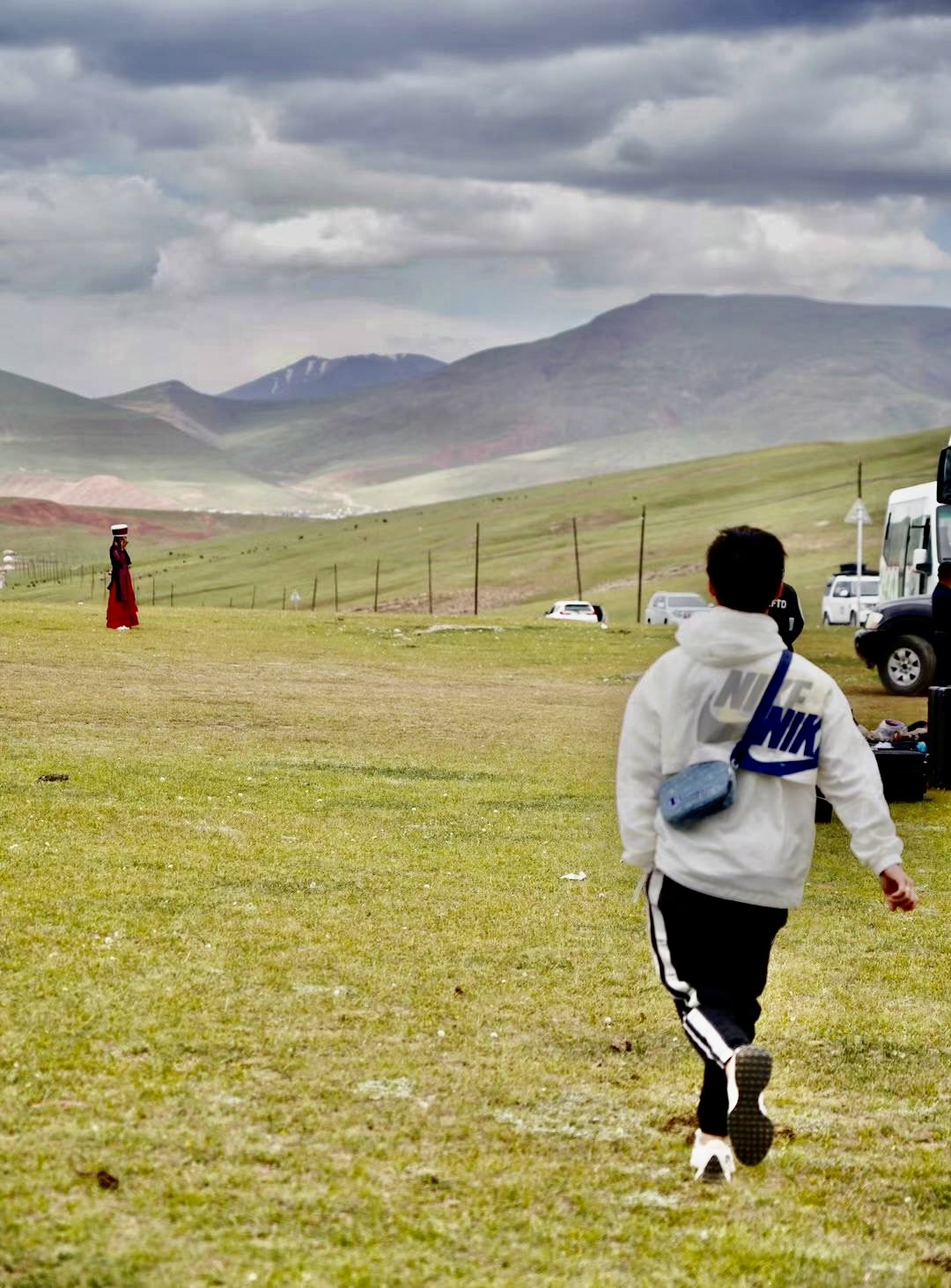August 4, 2023
The ten-day research trip has come to an end, hurried and busy.
Ten days, for Xinjiang, may be a moment, a moment in the endless stream of time; a long journey of ten thousand kilometers. We have only glimpsed one-thousandth of Xinjiang, yet from this small glimpse, we’ve seen golden glimmers, glimpsed stars rising, glimpsed myriad landscapes.
Sweeping across one-sixth of the country’s territory, we caught a glimpse of various common occurrences: the vastness of the northern and southern Xinjiang regions, the myriad history traversing thousands of years—part buried in sand, part growing in oases, and part scattered on the grasslands in the sky. As a child from Inner Mongolia, seeing grasslands stretching beyond the horizon still stirs me: it seems that what can be described is as scarce as the language I possess, the grassland scenery written, sung, and painted to exhaustion by countless writers, poets, painters, and musicians, also falls into my hands. Having seen many pictures of grasslands, I only understood the significance of my arrival when I arrived. It’s a certain purity, pure sky, pure clouds, and pure grass, pure cow dung, pure hills, pure sun, pure earthy smell, pure wind, pure river with glass-like clarity, pure herders, pure beef and mutton. Pure domes, sturdy felt tents, the sun slanting through the dome casting a beam of light into the felt tent. And I, an outsider to this environment, can also blend into this realm, merging incongruously with it, wandering in the green wind, roaming in the blue sea, spinning and spinning between the two colors.

Two hours after my world, finally at ten o’clock in the evening, I saw the glow of sunset filling the sky; the dry air emptied the moisture from my nasal cavity and swept away the rain clouds in the sky, leaving me with an overexposed world.
I always thought that fieldwork must be done in the countryside, to experience the local customs and practices. The music from that region comes from the local environment. When I sat on the Yiqitash grassland, the voice of Manas from a thousand years ago had already begun to resonate endlessly in my heart. At midnight, its wind, its grass, its mountains took me back to that kingdom, back to the epic of Manas. The murmuring water sounds like it did in the Manas era a thousand years ago. Me and Manas, separated by a thousand years, sat together, touching the grass, touching the earth, feeling the warm sunshine, listening to the low singing of the Kumuz. This reminds me of a walk with a friend at Peking University. I said I particularly like ancient trees, very very much. My friend was curious why, and I said, perhaps the tree you are touching now, Zhou Shuren (Lu Xun) was also contemplating and touching under this tree a hundred years ago, the bluestone you are stepping on now is the mud under Zhou Shuren’s feet at that time. And in that moment, you are connected, perhaps you understand what the master was thinking, or perhaps in that moment, the master also felt your presence. I felt the same way on that grassland. But it’s not the feeling of “The moon seen by the ancients is also seen by us today,” but the wonder and emotion of that moment, listening to Kyrgyz singing praises to Manas, two people with different languages, different cultures, different appearances, different clothing, different food, even different times, their thoughts collided for a moment. I don’t understand and I don’t think there’s any meaning to it, but I feel like a seed—perhaps in a certain life, I was also a generation of Manas, a generation of Kyrgyz, and one day, the Kumuz in my heart will suddenly awaken.
Along the way, I saw the deep eye sockets and high nose bridges of Uighurs, Kazakhs, Tajiks, Kyrgyz, Uzbeks, and Russian compatriots, their language resembling noodles and their architectural costumes and decorations resembling exotic patterns, but the red flag and square characters brought back the reality of the homeland. Along this journey, I came into contact with many ethnic compatriots, dispelling a considerable amount of my inexplicable fear of border areas. The harmonious gaze and words made me feel that we are not so far apart, even though our appearances are vastly different, and our languages are completely different. Nevertheless, this trip persevered (of course, if this trip were free and without tasks, it would be more beautiful and smoother; if this trip didn’t have that stupid teacher, perhaps we could put more thoughts and feelings into everything about Xinjiang, melting ourselves into it) and ended smoothly. I don’t know if this can be considered a glimpse into the leopard’s spots.
Ten days, I have only lightly opened a crack in the door of Xinjiang. The things I glimpsed through this crack have drawn the heart of a twenty-one-year-old youth, perhaps, the gears of destiny have begun to turn from here on…